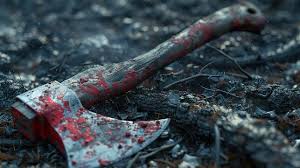MATABELELAND North and South provinces have a shortage of 483 teachers combined out of a national total gap of 6 846 vacant teaching posts in the eight rural provinces.
This comes as the Government has decentralised the recruitment of teachers in a move that is meant to expedite the process and reduce the shortage of teachers in the country.
This is part of several measures that the Government is embarking on in its push towards addressing several challenges bedeviling the education sector such as teacher and schools’ shortages as well as infrastructure development and e-learning.
In September last year, 2 500 teachers were recruited. In a circular to provincial education directors, Permanent Secretary in the Ministry of Primary and Secondary Education, Mr Moses Mhike said 2 000 posts will be filled this year and advised the provincial recruitment committee to use a pro-rata basis when recruiting.
“Please be advised that following the decentralisation of recruitment of teachers at provincial level, the ministry has a balance of 2 000 posts to be filled in the 2024 financial year,” he said.
“The ministry has a total of 6 846 vacant posts from the eight rural provinces. In view of that, all provincial recruitment committees are being advised to use a pro-rata basis to recruit teachers across all teaching levels as shown on the table.”
According to the vacant posts list from the eight provinces, Matabeleland North province needs 176 teachers, Matabeleland South 307, Midlands 214, Masvingo 366, Mashonaland West 352, Mashonaland East 143, Mashonaland Central 313 and Manicaland 129.
The deployment of the recruited teachers will be for both primary and secondary schools. In the recruitment process, there will be a deliberate bias towards science, biology, chemistry, mathematics, and physics teachers as these are the most affected subjects due to the high demand of the subjects in both the private schools and the industry in general.
Generally, schools in remote areas of the country tend to be the most affected as teachers who specialise in mathematics and science subjects are reluctant to take up teaching posts there.
The other reason for shortages of science subjects in remote parts of the country is related to the issue of inadequate infrastructure such as roads and electricity.
Speaking before the 2024 budget presentation in Parliament last year, the Minister of Primary and Secondary Education, Torerai Moyo, said ideally a school must be built in every province on an annual basis, depending on synergies with private players in the economy.
He said his ministry will lobby local authorities to utilise devolution funds in the construction of schools to reduce the shortage gap.
The minister added that the Government was considering formalising some illegal schools and opening more satellite schools.
Further, the ministry is working on strengthening open and distance learning through the National Centre for Open and Distance Learning, which will promote mobile and distance learning particularly for learners in remote areas.
Source Zimbabwe Situatio










